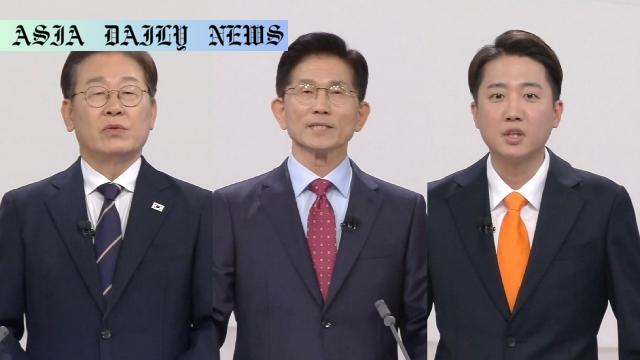South Korean Election: The ruling and opposition parties gear up for a high-stakes presidential election on June 3.

High Stakes for South Korea’s Presidential Election
The upcoming South Korean presidential election on June 3 has captured national attention, as it promises to be a dramatic showdown between the ruling People Power Party and the opposition Democratic Party. The contest is chiefly between Lee Jae-myung, the opposition Democratic Party’s frontrunner, and Kim Moon-soo, the ruling party’s candidate. According to recent Gallup Korea surveys, Lee Jae-myung enjoys a commanding 45% support, while Kim Moon-soo lags behind at 36%. Adding complexity to the race is Lee Jun-seok, a candidate from the minor conservative Reform Party, who has garnered 10% support.
Efforts to Consolidate Conservative Votes
The People Power Party has been scrambling to unify conservative voters by lobbying for a single candidate to strengthen their chances against Lee Jae-myung. However, Lee Jun-seok, the Reform Party’s candidate, has openly declared that there will be no merger with the ruling party. This division has cast doubts on whether the conservatives can present a consolidated front in the remaining days before the election. Despite these obstacles, the ruling party remains dedicated to its efforts, with party officials stating they will strive to field a unified candidate until the final hour.
The Role of Early Voting
Early voting for the election is set to commence on Thursday, providing South Koreans with an opportunity to cast their vote ahead of the official election date. This development is particularly significant as it could potentially sway voter turnout and influence election day dynamics. The early voting period will likely benefit parties with well-organized grassroots mobilization efforts. Observers believe that this phase could serve as a preliminary test of both parties’ strengths, further heightening the anticipation for the final results on June 3.
Political and Historical Backdrop
The election is not taking place in isolation but is rooted in South Korea’s complex political history. Former President Yoon Suk-yeol’s administration and its controversial policies remain fresh in public memory, influencing the political discourse leading up to the polls. Lee Jun-seok’s refusal to align with the ruling party stems from allegations surrounding Yoon’s failed martial law declaration in December, which continues to taint the party’s image among certain voter demographics. This historical baggage adds another layer of intrigue and complexity to the election.
Implications for South Korea’s Future
Regardless of who wins the election, the result will significantly impact South Korea’s domestic policies and international relations. Lee Jae-myung’s policies emphasize social welfare and economic equity, appealing to younger voters and progressives. Meanwhile, Kim Moon-soo prioritizes conservative values and economic growth, drawing support from older, more traditional demographics. The next president’s stance on issues like relations with North Korea, U.S. partnerships, and domestic economic reforms will shape the country’s trajectory for years to come.
Final Thoughts
As the clock ticks down to June 3, the margins between the leading candidates could either narrow or widen depending on strategic maneuvers and public sentiment. South Koreans face a monumental choice in determining their next leader amidst a backdrop of economic challenges and global uncertainties. The election underscores the vitality of democracy and the significant role citizens play in shaping their nation’s future.
Commentary
The Importance of Voter Participation
The upcoming South Korean presidential election is a critical juncture in the country’s democratic process. As citizens prepare to cast their votes, it is imperative to recognize the role of voter participation in shaping national leadership and policy direction. The stakes are particularly high this year, with an election that highlights deep political divisions and competing visions for South Korea’s future.
Conservative Unity: A Complex Challenge
The efforts of the People Power Party to unify conservatives reflect a strategic imperative but also highlight the challenges of coalition-building in a fragmented political landscape. The refusal of Lee Jun-seok from the Reform Party to merge candidacies serves as a stark reminder of the barriers that ideological and historical divides can create. While unity might strengthen conservative prospects, the ruling party must also navigate the delicate task of maintaining its credibility and addressing public concerns.
A Decision That Will Shape the Future
The differing platforms of the leading candidates underscore the diverse challenges and priorities facing South Korea. Whether voters choose Lee Jae-myung’s progressive agenda or Kim Moon-soo’s conservative policies, their decision will have long-lasting implications for domestic economic policies, international diplomacy, and societal cohesion. In these uncertain times, the election serves as not just a political event but as a momentous decision for the nation’s trajectory.
Conclusion
As Election Day approaches, South Koreans find themselves at a pivotal moment in their history. The outcome of the polls on June 3 will resonate far beyond the country’s borders, influencing its future role on the international stage. This election is an opportunity to reinforce democratic principles, address key societal issues, and ensure a prosperous and equitable future for all citizens.


